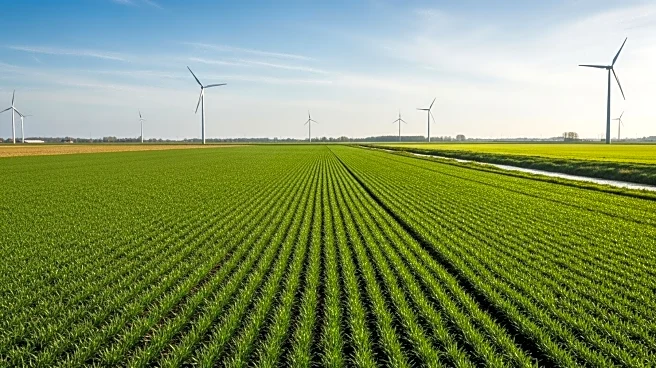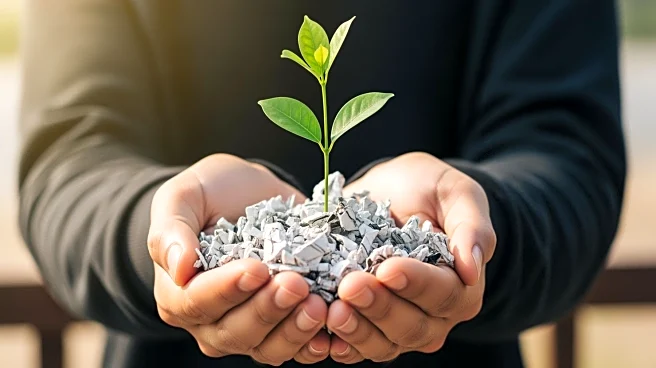What's Happening?
The global Carbon Farming Market is projected to grow significantly, reaching $330.01 billion by 2032, driven by regenerative agriculture practices such as reforestation, cover cropping, and soil management. Key players like Indigo Ag and Nori are expanding initiatives to monetize carbon credits through sustainable practices. Recent developments include Indigo Ag's expansion of its Carbon by Indigo program and Nori's Series B funding to scale its carbon removal marketplace. These efforts aim to enhance soil health, mitigate climate change, and provide financial incentives to farmers.
Why It's Important?
Carbon farming represents a crucial strategy in combating climate change by capturing and storing carbon in plants and soil. The market's growth reflects increasing recognition of sustainable agriculture's role in environmental conservation and economic opportunity. By enabling farmers to earn income through carbon credits, the industry supports both ecological and financial sustainability. The expansion of carbon farming initiatives can drive innovation in agricultural practices, influencing policy and investment in climate-smart agriculture.
What's Next?
The carbon farming industry is expected to see further advancements in technology and market penetration, with companies focusing on new product launches and strategic growth plans. The expansion of carbon credit programs may lead to increased collaboration between farmers, corporations, and government agencies. As the market evolves, stakeholders will likely explore additional practices and regions for carbon farming, potentially influencing global agricultural policies and climate change mitigation strategies.









